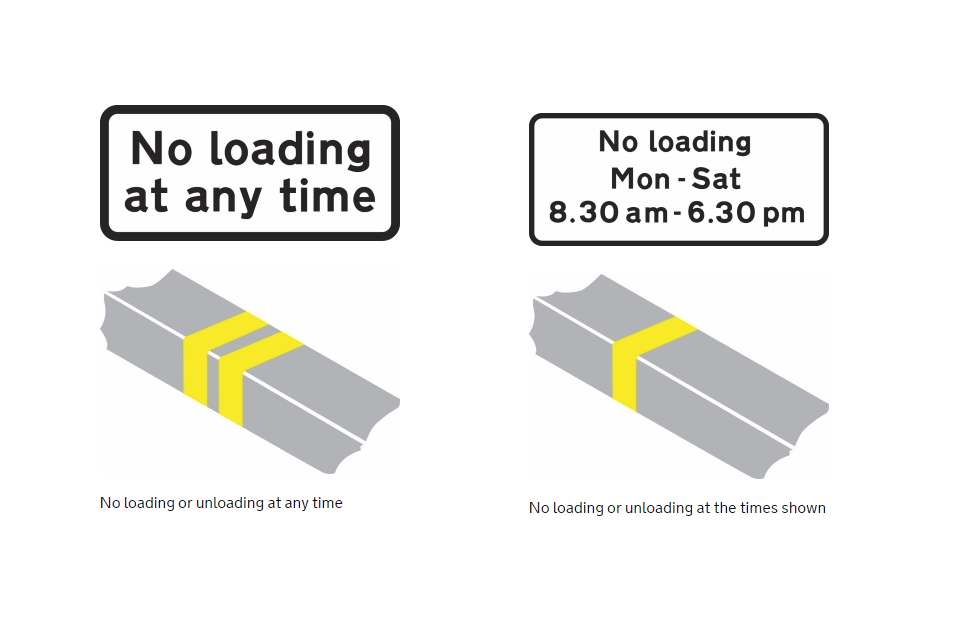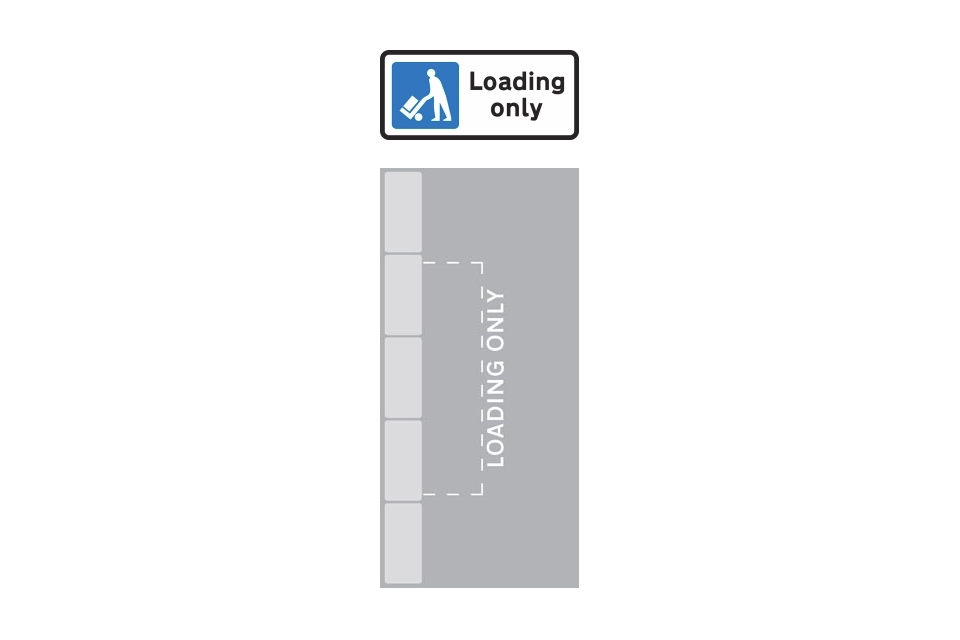Driving a van
Who can drive a van, the speed limits and weight limits that apply, and rules on loading, drivers' hours and maintenance.
Applies to England, Scotland and Wales
New rules for transporting goods in vans in Europe
You now need a goods vehicle operator licence and a transport manager to transport goods in vans in Europe.
This applies to businesses of every size, including sole traders.
Check if you can drive a van
You can drive a van up to 3,500kg if you have a standard car driving licence.
View your driving licence information to check what types of vehicles you can drive.
If you passed your driving test after 1 January 1997
You might need to take extra tests before you can:
- drive vehicles weighing between 3,500kg and 7,500kg
- tow a trailer with your van
Find out how to add higher categories to your driving licence.
You can be fined up to £1,000 and get 3 to 6 penalty points for driving without the right licence.
Tax, MOT and insure your van
Your van must be taxed if you’re driving it on public roads.
You can check when its tax runs out.
You can be fined up to £1,000 for driving without vehicle tax.
MOT
You need to get an MOT for your van every year when it reaches 3 years old.
You can check the MOT status or history of your van, and get an MOT reminder by text message or email one month before your MOT is due.
For the MOT, your van will be classed as either:
- class 4 if it’s up to 3,000kg design gross weight (this include car-type vans)
- class 7 if it’s over 3,000kg up to 3,500kg design gross weight
The MOT fees table shows the maximum you can be charged.
You can be fined up to £1,000 for driving without a valid MOT.
Insurance
You must have vehicle insurance to drive a van.
Check the level of cover you need and tell your insurance company whether your van is for social or business use, as this will affect your policy.
You can get an unlimited fine and 6 to 8 penalty points for driving without insurance.
Speed limits
Vans have lower speed limits than cars and car-type vans.
| Type of van | Built up area* | Single carriageway | Dual carriageway | Motorway |
|---|---|---|---|---|
| Van | 30 mph | 50 mph | 60 mph | 70 mph |
| Car-type van | 30 mph | 60 mph | 70 mph | 70 mph |
| Van and trailer | 30 mph | 50 mph | 60 mph | 60 mph |
*The 30 mph limit usually applies to all traffic on all roads with street lighting unless signs show otherwise.
You can be fined up to £1,000 (£2,500 for motorway offences) and get 3 to 6 penalty points for speeding.
Weight limits and loading
Your van has a maximum it’s allowed to weigh when loaded. This is called the ‘design gross weight’, which you can find on your van’s vehicle identification number (VIN) plate.
It’s sometimes known as the ‘gross vehicle weight’ or ‘laden weight’, but means the same thing.
What the weight limit includes
It’s the maximum the van is allowed to weigh, including the weight of the:
- van
- driver and passengers
- fuel
- load
Check your van’s weight
You can check how much your van weighs at a local weighbridge.
Overloaded vans
Your van’s performance and safety will be affected if you overload it or its individual axles.
You can be fined up to £300 or get a court summons if your van exceeds its maximum permitted axle weight.
Secure your goods
Some vans don’t have a bulkhead. In the event of an accident, the contents of your cargo area could end up in the cab if they aren’t secured properly.
Load your goods evenly throughout the cargo area, with the heaviest items at the bottom. Don’t overload the individual axles.
Use appropriate restraints to secure your load, like netting and straps.
How to load your van legally and safely
Watch a video about how to load your van legally and safely.
Driving a van: weight limits and loading
How long you can drive for
You must follow the rules on how many hours you can drive and the breaks that you need to take.
The rules that apply to depend on:
- the weight of your van
- the country you’re driving in
- what you’re using the van for
In the UK
If you drive a van for business for more than 4 hours a day, you must follow the Great Britain domestic rules on drivers’ hours.
They outline your working hours and the rest periods you must take.
You can be fined up to £300 for exceeding daily driving limits.
Outside the UK
If you travel outside of the UK, you need to follow the domestic rules for the countries you’re visiting. Get this information from the relevant embassies.
You must follow the EU rules if you’re towing a trailer and the combined design gross weight is above 3.5 tonnes, but there are exemptions.
Parking
Yellow vertical lines on the kerb show where you’re not allowed to load, or if any restrictions apply. Any restrictions will be displayed on a plated sign.

Some roads have loading bay facilities. These will be shown as a white box marked ‘loading’ and a plated sign to give details of any specific restrictions.

Van maintenance
You must keep your van safe to drive. The walkaround checklist shows simple safety checks you can do.
You can be fined up to £2,500 and get 3 penalty points for using a van in a dangerous condition.
Tow a trailer
Check your driving licence information to make sure you’re allowed to tow a trailer.
You must follow EU rules If your combined van and trailer weight (sometimes called the ‘gross train weight’) is above 3.5 tonnes - but there are some exemptions.
These rules:
- affect the number of hours you can drive
- require you to record your hours using a tachograph
You must have a goods vehicle operator licence for your van and trailer if:
- the van and trailer are plated and the total of their gross plated weights is more than 3,500 kg
- the total unladen weight of the van and trailer combination is more than 1,525 kg
You don’t need an operator’s licence if your trailer’s unladen weight is less than 1,020 kg and you only carry your own goods.
Towing a trailer reduces the speed you’re allowed to drive at.
Roadside checks for commercial vehicle drivers
The police and Driver and Vehicle Standards Agency (DVSA) officers can ask you to stop at the roadside.
They have the power to carry out spot checks on your van and issue prohibitions if necessary. A prohibition prevents you from driving until you get a problem with your van fixed.
Police and DVSA officers can also issue fixed penalties if you commit an offence.
Find out about roadside vehicle checks for commercial drivers.
Being self-employed or employing other drivers
By law, employers and self-employed people must:
- assess the risks to anyone who might be affected by their work activity
- take appropriate preventive and protective steps to control these risks
You’re responsible for making sure:
- the van is safe to drive
- your drivers are suitably trained, aware of road traffic law, and follow The Highway Code
Your company could be liable if an employee is killed or injured during their working hours.
Read about running a fleet of vans.
Find out more about your management responsibilities for workplace transport.
Updates to this page
-
You now need a standard international goods vehicle operator licence to use a van or car and trailer to transport goods for hire or reward in the EU, Iceland, Liechtenstein, Norway and Switzerland.
-
Added information about new rules for using vans to transport goods to or through Europe from 2022, and a link to more information.
-
Added a link to get MOT reminders by text message or email.
-
First published.